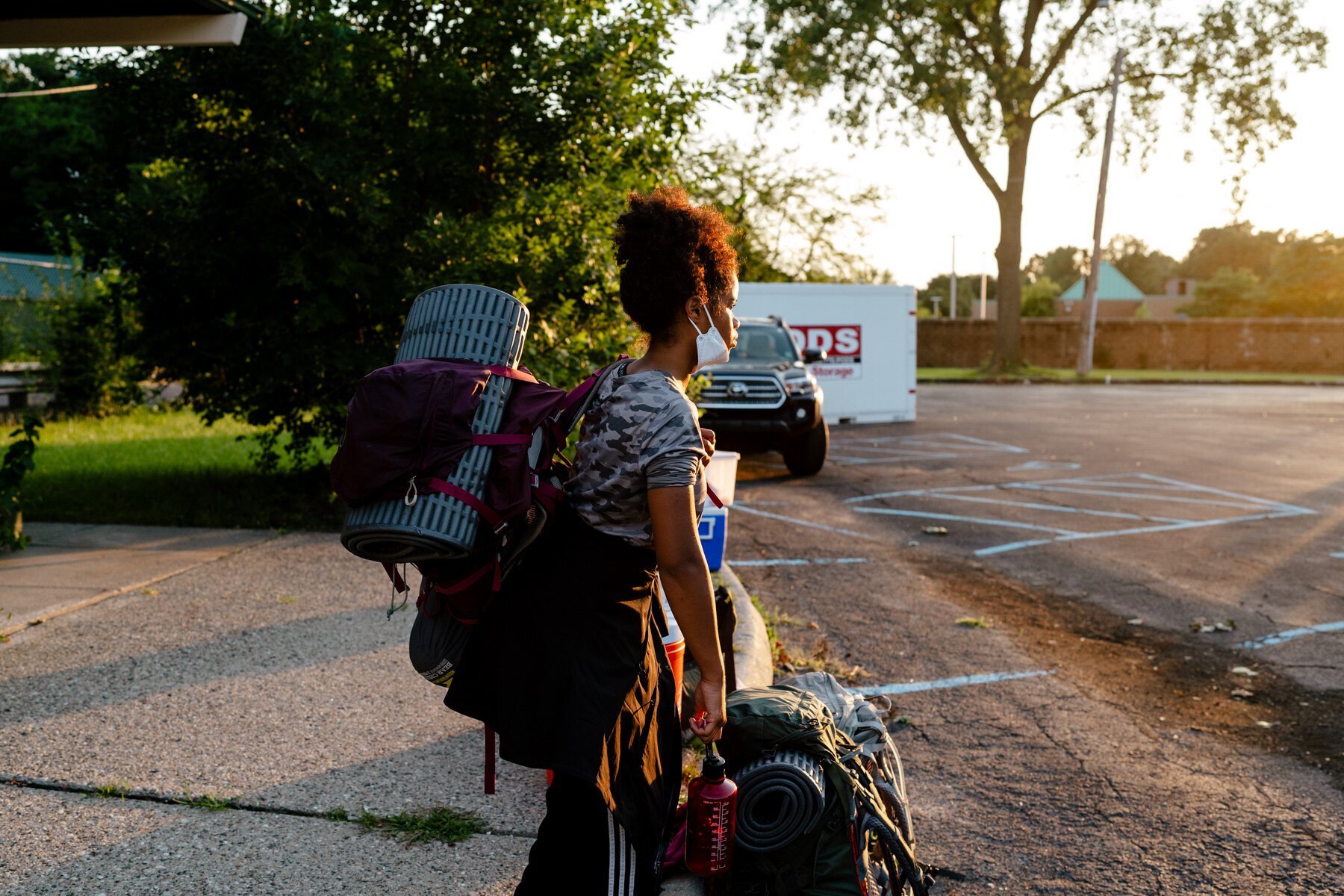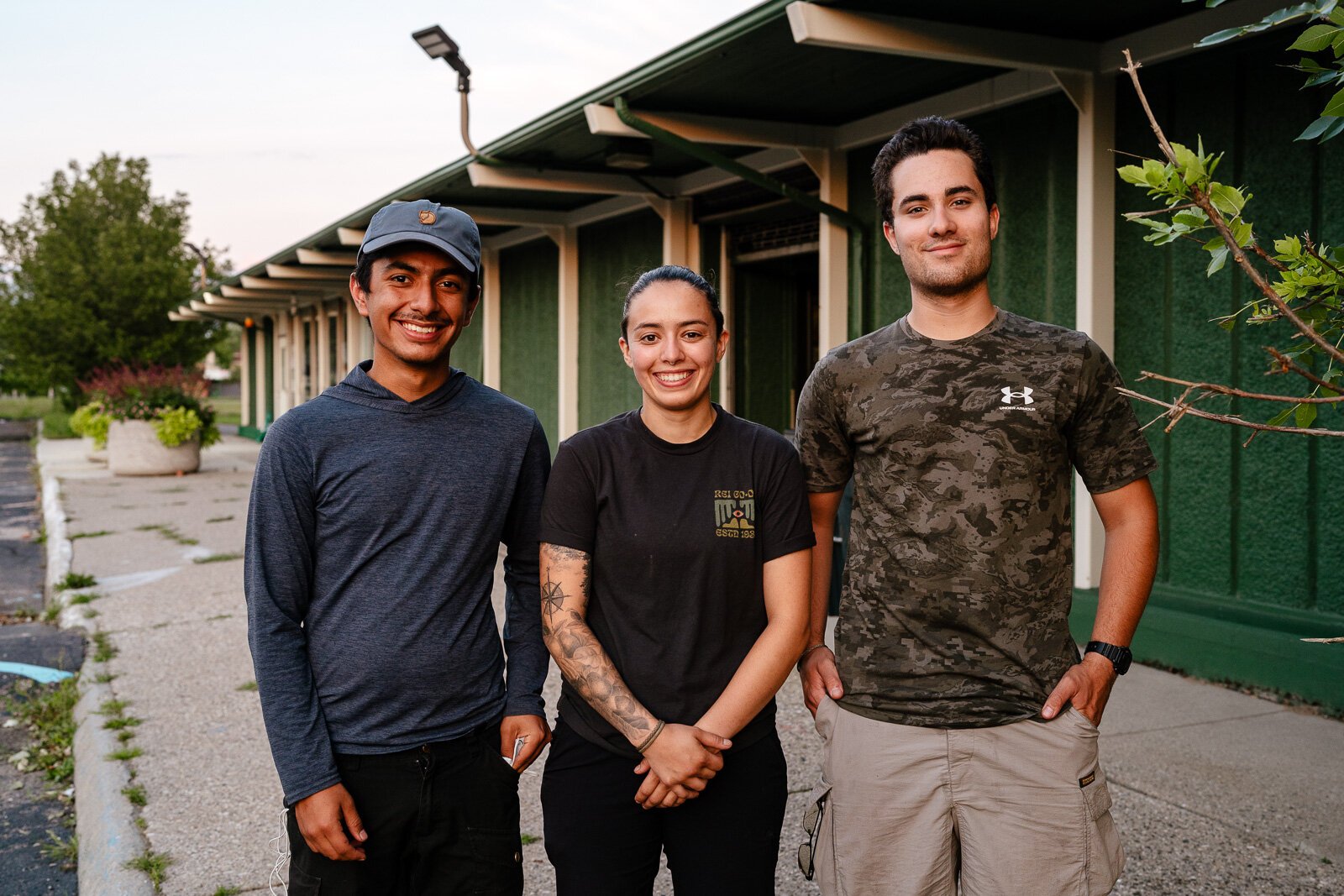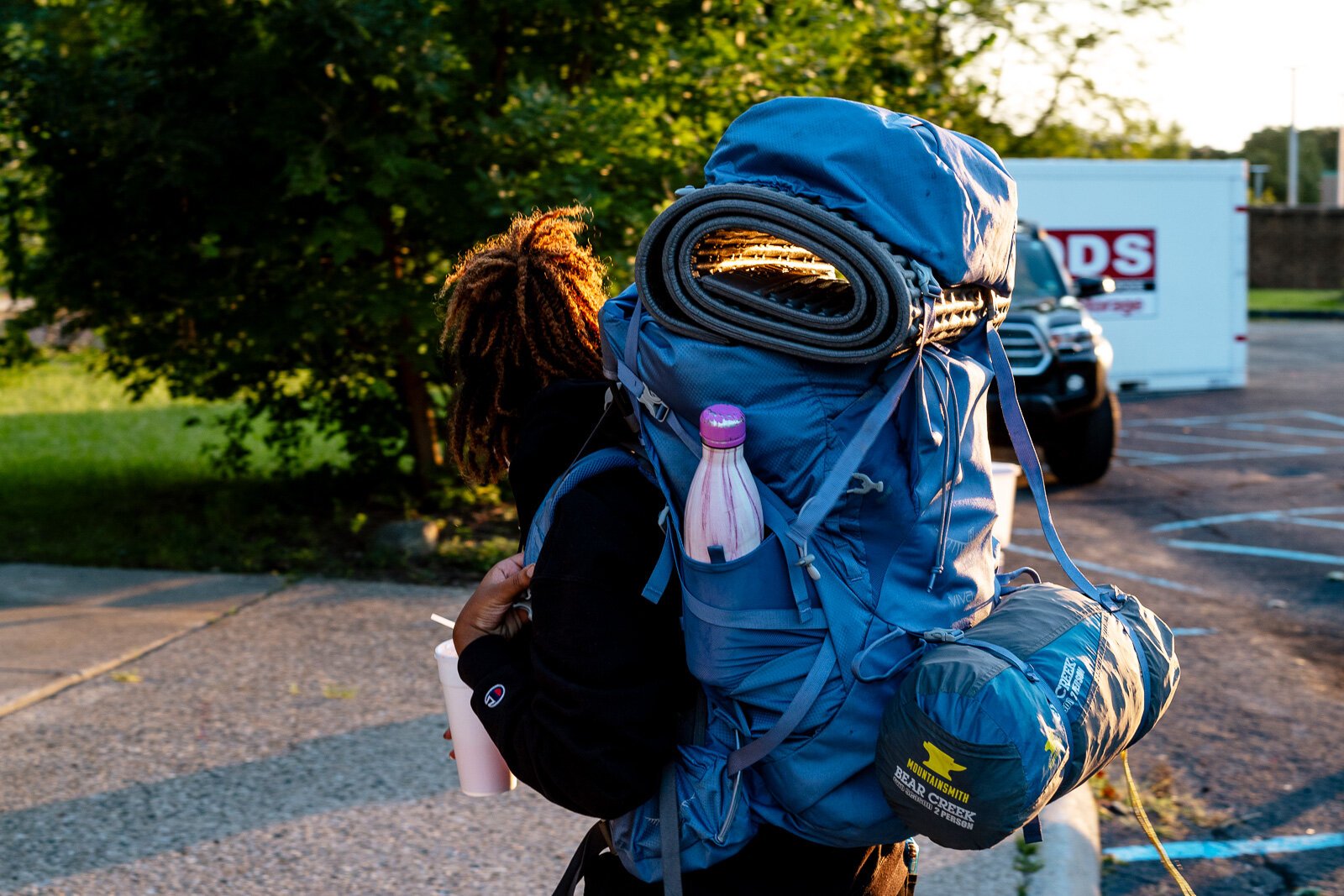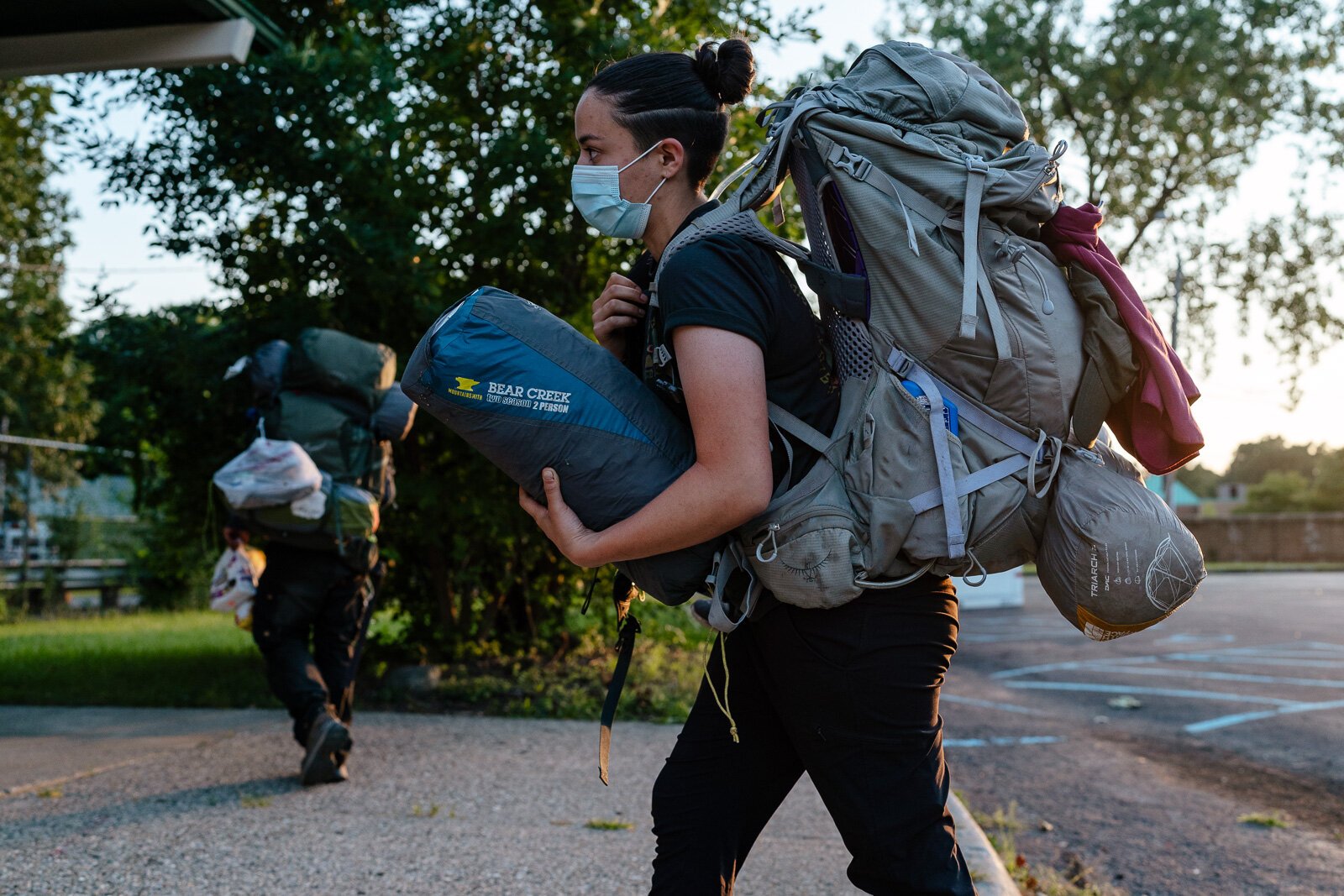Outdoor recreation professionals across our region have focused more attention on diversity, equity, and inclusion, and begun thinking about them in new ways, in recent years.
This article is part of Inside Our Outdoors, a series about Southeast Michigan’s connected parks, greenways, and trails and how they affect residents’ quality of life. It is made possible with funding from the Michigan Trails and Greenways Alliance.
Garrett Dempsey says discussions about diversity, equity, and inclusion (DEI) in outdoor recreation too often follow a limiting narrative of lack rather than abundance.
“It’s a conversation that often starts with there being a deficit in communities of color engaging in or being connected to the outdoors,” says Dempsey, program manager for Detroit Outdoors, a collaborative comprising the Sierra Club, the YMCA of Metropolitan Detroit, and the Detroit Parks and Recreation Department. “I don’t want to say that doesn’t exist or isn’t a reality, but our work in Detroit shows very clearly that there are very deep, very meaningful connections between communities of color, people of color, and marginalized communities [and the outdoors] that are strong and go back generations.”
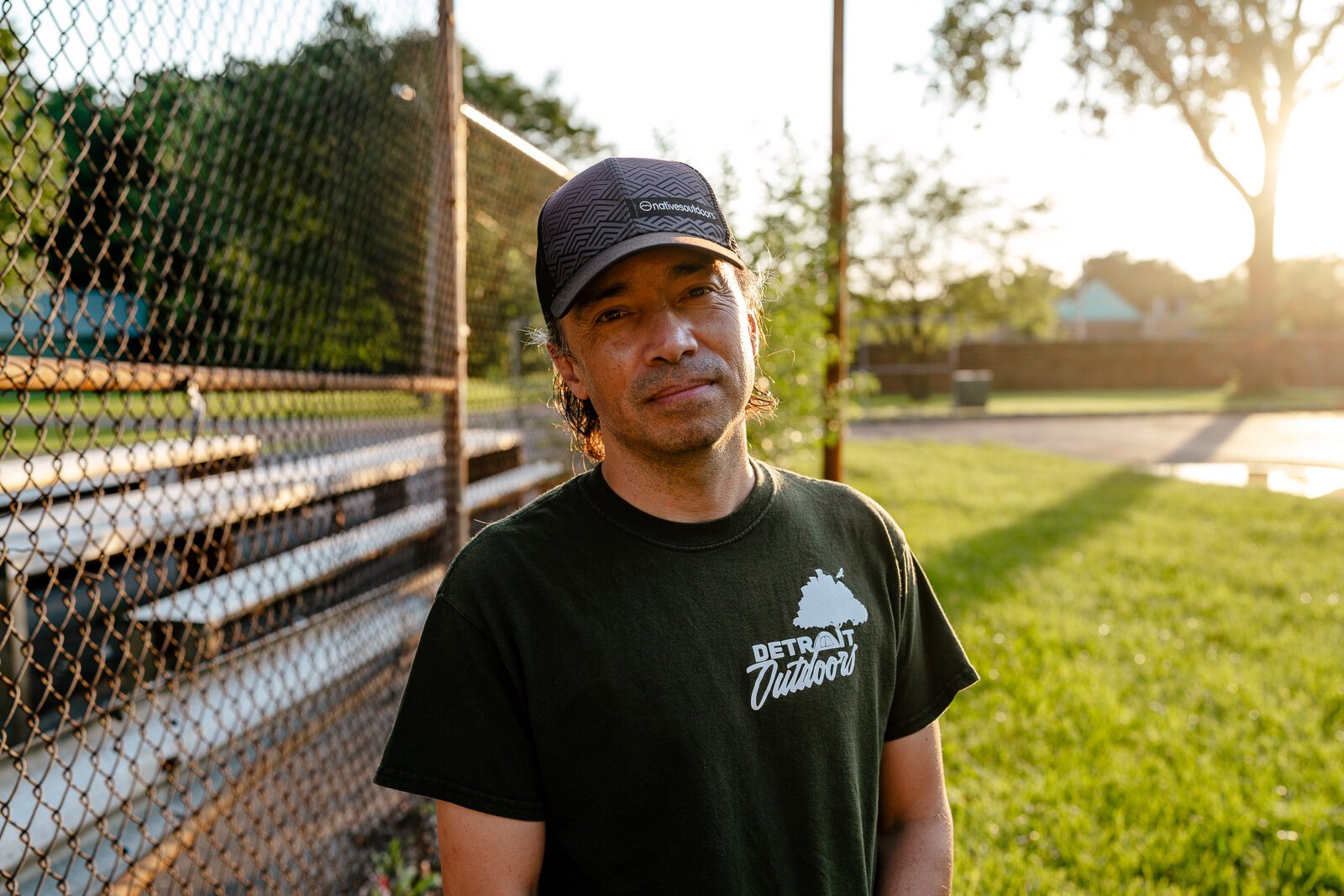
Across Southeast Michigan there is a growing movement to improve the region’s outdoor recreation opportunities through the lens of DEI. Those efforts can take a variety of forms, including ensuring that cost is not a barrier to accessing parks and outdoor recreation, implementing more culturally competent programming, and working to better include people of marginalized identities in planning, programming, and staffing.
“Imagine a senior citizen coming into a park where there are spaces designed for them, like an adult playground where they don’t have to worry about their gait and they can be active,” says Artina Carter, chief of diversity, equity, and inclusion at Huron-Clinton Metroparks. “Or imagine someone with a disability seeing another person with a disability doing real work at a park, and that park is also conducive to their needs. That’s DEI.”
Rethinking DEI
Carter has been at the forefront of DEI efforts at the Metroparks, which cover five Southeast Michigan counties, for about two years. She says she’s been working steadily to establish a “baseline” that fosters a mindset that DEI is an asset to the Metroparks.
“It’s one where staff don’t have to agree with everything, but at the end of the day we can come together for conversations, work together, and do all the things that are important to what we need to do every day to make our parks better,” she says.
Tyler Kilfman, an economic and community vitality planner with the Southeast Michigan Council of Governments (SEMCOG), says outdoor recreation professionals across our region have focused more attention on DEI and begun thinking about it in new ways in recent years.
He points to a survey SEMCOG did in early 2019 through Southeast Michigan Wild, a collaborative group of outdoor recreation agencies. The survey respondents included larger-scale recreation providers from across the region. One of the questions they were asked was if they plan their programs with DEI in mind, and to describe their approach.
Some common challenges became apparent: ensuring there is enough green space for enough people, and providing enough accessible and inclusive programs that actually reach people in those spaces. Kilfman feels that today respondents would say the challenges are the same, but their approach would be different. He says it was “inherent” for the recreation professionals “to think about community members who may have more economic or health needs, like seniors or youth.” But he says it was also apparent that the respondents were “casting a broad net” in addressing those community members as a single group, rather than thinking more deeply about individual needs.
“What we’ve seen recently is a lot more deliberate, focused attention on trying to actually find where there are gaps, and exactly where people are not being reached, and being intentional around closing those gaps,” Klifman says.
For the Metroparks, increased focus on DEI has entailed not only mandatory staff trainings and a public DEI speaker series, but also a recently initiated process of conducting conversations across the five communities the parks serve to discover any oversights regarding needs.
“I want everyone to see themselves in our parks and I want us to have every single thing that everybody in our counties needs,” Carter says.
Kilfman stresses that the survey also revealed a real gap when it comes to the diversity of workers in the parks and recreation field, especially a lack of nonwhite workers who live in urban areas. The Metroparks, for example, used to have a workforce that was 98% white. But measurable progress has been made after park administrators took an earnest look at the system’s hiring processes and ways to open up non-traditional employment entry points. The system’s staff is now 94% white.
Klifman is confident that introducing youth from urban areas to conservation-related careers could be a game-changer in continuing to build a more diverse outdoor recreation workforce.
“Giving these youth exposure and experience in different areas like water quality sampling, planning, or mapping is something that is being looked at a lot more and could have tremendous impact toward increasing worker diversity,” he says.
“We can heal together”
That’s exactly what Dempsey is betting on at Detroit Outdoors, which is centered on fostering more meaningful connections between Detroit youth and the outdoors. Engaging young people in learning opportunities and activities such as overnight camping comes with immediate, tangible, experiential benefits and can also open up career pathways in the industry.
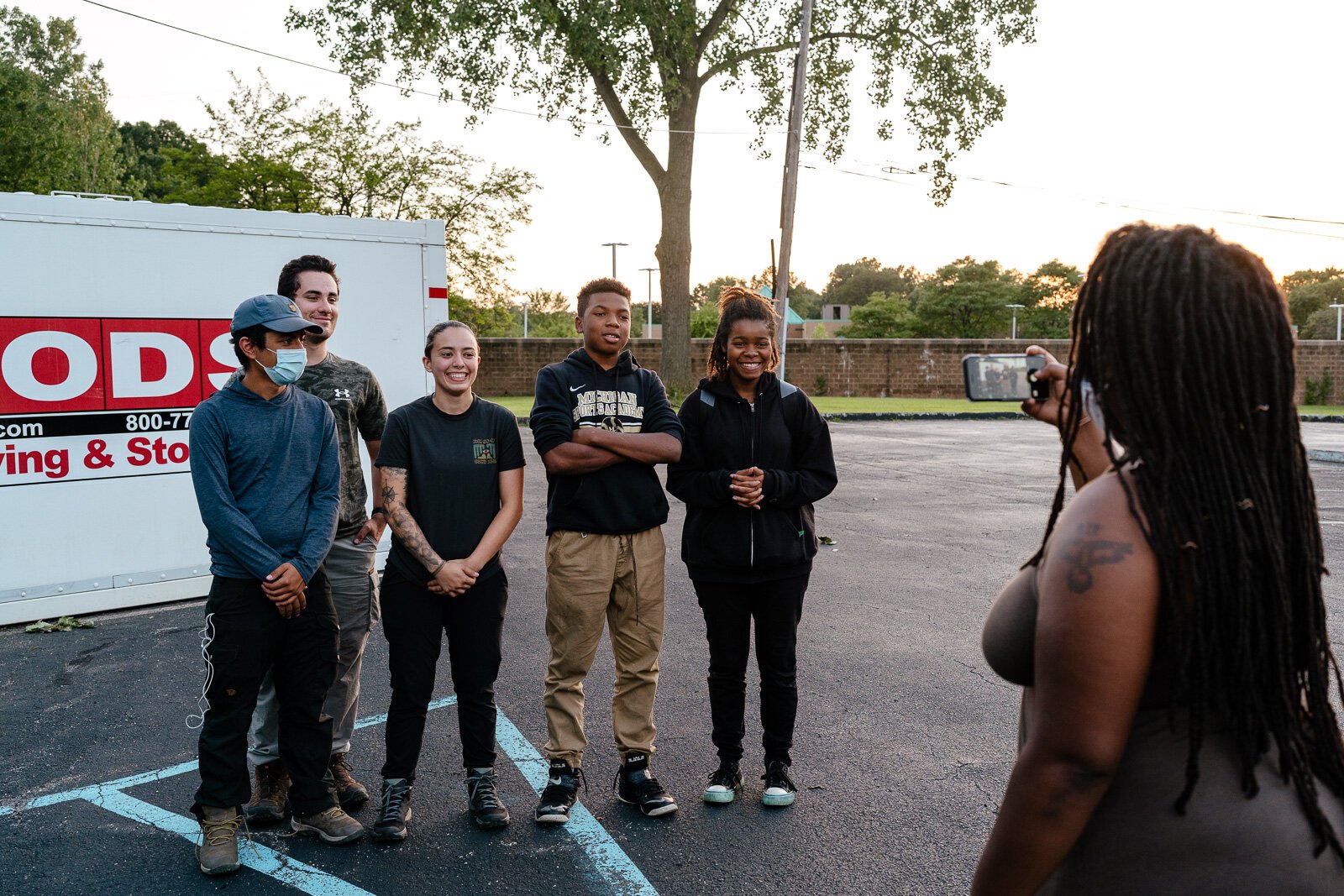
It was with this mindset that Detroit Outdoors (with funding from the Kresge Foundation and the Ralph C. Wilson, Jr. Foundation) recently mobilized to reactivate Detroit’s only campground. Located in Rouge Park, the Scout Hollow campground had largely been abandoned. Today, a full camping library exists with everything that a teacher or agency worker would need to take children camping. Whether it’s high schoolers getting to know each other before heading into a program, or a group of five-year-olds camping for the first time, youth only need to bring themselves, their clothes, and a spoon.
Dempsey also works with Indigenous tribal partners to connect Detroit youth to lessons about the land, nature, and healing. Two such partners are Katy Bresette and Jerry Jondreau. Both are members of the Lake Superior Band of Ojibway and run Dynamite Hill Farms in L’Anse. Jondreau’s background is in natural resources. He started the first tribal forestry program on his reservation. He is also no stranger to DEI, having worked at Michigan Technological University, where he was the director for recruitment for what was then the School of Forestry Resources and Environmental Science.
“There is a real need for working with our rural communities and inner-city folks to create some cross-cultural experiences,” Jondreau says. “By bringing people from the city up here and bringing some of our folks down to the city, we can remind each other that as people of the global majority we are supposed to be in these spaces and environments.”
Bresette underscores that the lessons and teachings they share are specific to only the Lake Superior Band of Ojibway and not representative of all Indigenous people. She notes that they’ve been putting their energy into facilitating conversations with the African-American, Latinx, and Indigenous communities.
“I call them survival communities. These are folks who historically have been, or who are, in similar boats,” she says. “The idea is that as we share stories about how we have been divorced from our communities, families, and land, we can heal together.”
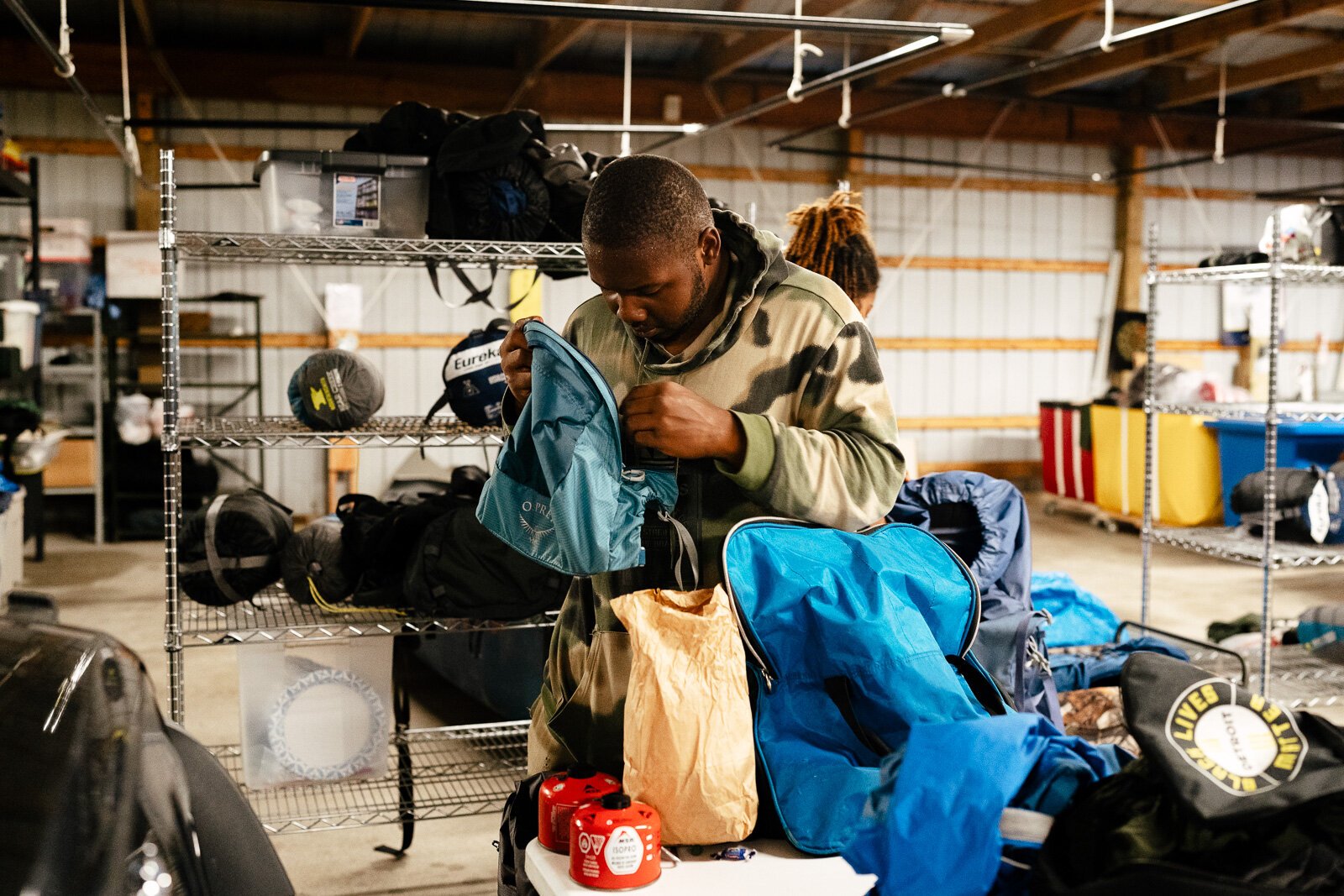
Dempsey agrees wholeheartedly.
“To make meaningful experiences it requires us to have thoughtful conversations about the history of this country and the connections to land,” he says. “We feel that our outdoors has an important place in our country and society to really heal trauma around race and class.”
Jaishree Drepaul-Bruder is a freelance writer and editor currently based in Ann Arbor. She can be reached at jaishreeedit@gmail.com.
Photos by Nick Hagen.
